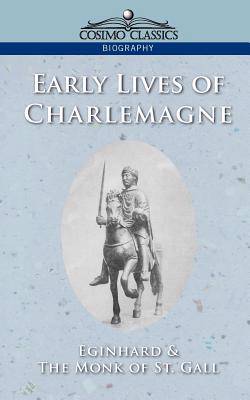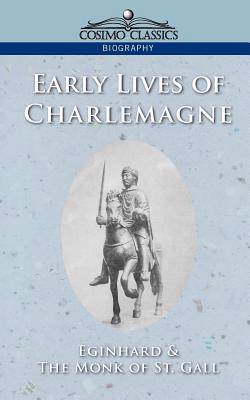
Bedankt voor het vertrouwen het afgelopen jaar! Om jou te bedanken bieden we GRATIS verzending (in België) aan op alles gedurende de hele maand januari.
- Afhalen na 1 uur in een winkel met voorraad
- In januari gratis thuislevering in België
- Ruim aanbod met 7 miljoen producten
Bedankt voor het vertrouwen het afgelopen jaar! Om jou te bedanken bieden we GRATIS verzending (in België) aan op alles gedurende de hele maand januari.
- Afhalen na 1 uur in een winkel met voorraad
- In januari gratis thuislevering in België
- Ruim aanbod met 7 miljoen producten
Zoeken
Early Lives of Charlemagne
Eginhard, Of St Gall Monk of St Gall, Ca 770-840 Einhard
Paperback | Engels
€ 21,95
+ 43 punten
Omschrijving
Charlemagne's impact on Europe -- on the world -- cannot be underestimated. He brought together diverse cultures in his empire, supported scholarship, and established the power of the Christian church. In Early Lives of Charlemagne, we receive two views of the emperor within a century of his death. According to translator and editor A.J. Grant, the differences are instructive. In the treatment by Eginhard, who was Charlemagne's personal secretary, we read a "restrained, positive, well-arranged narrative" that "distorts the facts of history wonderfully little." In contrast, the Monk of Saint Gall's version was written about seventy years after the emperor's death, when "the mist of legend and myth steamed up rapidly from the grave of a well-known figure." Taken together, these essays provide information not only about Charles the Great, but also about the task of writing history and biography.
Specificaties
Betrokkenen
- Auteur(s):
- Uitgeverij:
Inhoud
- Aantal bladzijden:
- 212
- Taal:
- Engels
Eigenschappen
- Productcode (EAN):
- 9781596050464
- Verschijningsdatum:
- 1/05/2005
- Uitvoering:
- Paperback
- Formaat:
- Trade paperback (VS)
- Afmetingen:
- 127 mm x 203 mm
- Gewicht:
- 235 g

Alleen bij Standaard Boekhandel
+ 43 punten op je klantenkaart van Standaard Boekhandel
Beoordelingen
We publiceren alleen reviews die voldoen aan de voorwaarden voor reviews. Bekijk onze voorwaarden voor reviews.









